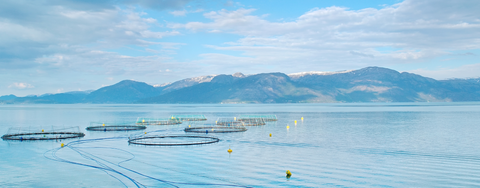No Products in the Cart

Salmon is well-known for it's taste and health benefits. However, not all salmon is created equal. While both wild-caught and farmed salmon may look similar, they are vastly different when it comes to nutrition, taste, and environmental impact. We will explore the benefits of wild-caught salmon over farmed salmon and why it is a better choice for your pup's health and the planet.
Health Benefits: Wild-caught salmon is a nutritional powerhouse, rich in omega-3 fatty acids, vitamins, and minerals. Omega-3 fatty acids are essential for brain function, heart health, and reducing inflammation in the body. Wild salmon contains higher levels of omega-3s than farmed salmon, which can have up to 50% less omega-3s due to their diet and living conditions. Wild caught salmon is also lower in calories and naturally has 68% less saturated fat than farmed salmon. Not to mention, wild caught salmon avoids chemicals and antibiotics found in farmed fish.
Taste: Looking at taste alone, wild caught salmon beats out farmed salmon because of its firmer texture and stronger flavor. Wild caught salmon has a more complex and nuanced flavor due to its varied diet and natural habitat. In contrast, farmed salmon tends to have a milder taste and can have a mushy texture due to its confined living conditions and controlled diet.
Environmental Impact: While fish farming practices vary per farm, most fish farms can have a negative impact on the environment due to the large amount of waste and chemicals produced by the farms. Dense feedlot conditions typically use drugs and antibiotics to keep the fish heathy. These chemicals can pollute waterways and marine ecosystems that in turn harms local wildlife, including wild salmon populations. One National Academy Sciences study found that sea lice from fish farming operations killed up to 95% of wild juvenile salmon migrating past them. In contrast, wild caught salmon that is sustainably caught from the ocean has a much lower environmental impact than its farmed counterpart.